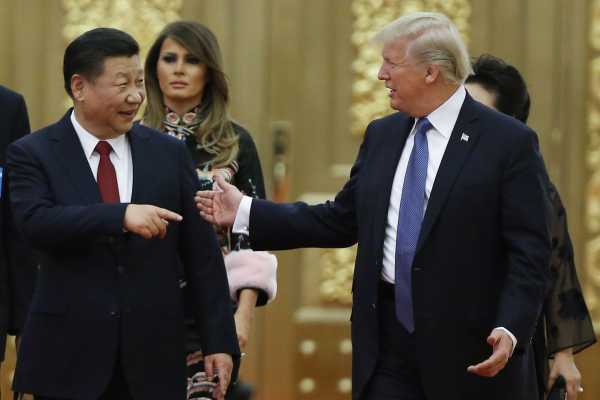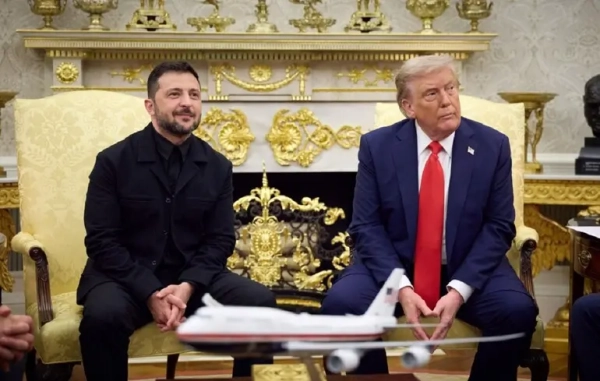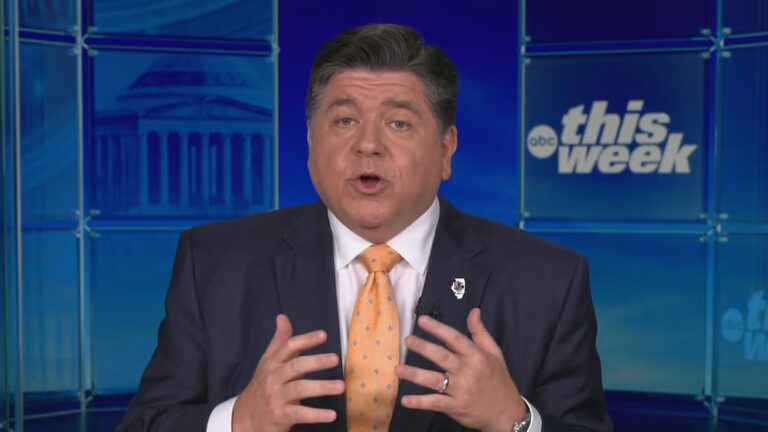
President Donald Trump’s victory lap on a temporary detente in the trade war with China might be a little premature — and misleading.
In a series of tweets over the weekend, the president celebrated the modest compromise on trade he reached with Chinese President Xi Jinping in Buenos Aires on Saturday in which Trump agreed to temporarily hold off on increasing tariffs on $200 billion of Chinese goods in exchange for China purchasing a still-to-be-defined amount of American-made products.
Trump declared that China had agreed to reduce and remove tariffs on cars coming into China from the US, and he wrote that China intends to “start purchasing agricultural product immediately” from the US.
“Relations with China have taken a BIG leap forward!” he tweeted.
It’s not clear, however, how much Trump’s declarations line up with reality. White House aides and China have told different stories than the one Trump is offering on what exactly was agreed to, and what’s going to happen and when.
“It doesn’t seem like anything was actually agreed to at the dinner and White House officials are contorting themselves into pretzels to reconcile Trump’s tweets (which seem if not completely fabricated then grossly exaggerated) with reality,” one JPMorgan analyst wrote in a note to clients reported by CNBC’s Carl Quintanilla.
Those 0 percent auto tariffs are a little elusive
On Saturday, Trump tweeted that China will drop its 40 percent tariff on auto imports from the US to zero. National Economic Council Director Larry Kudlow hedged on both the timeline and rates involved in a Monday call with reporters.
“That is my understanding, and I believe that commitment was made,” Kudlow said. “And this is an area … where that word ‘immediately’ comes in. Let’s get rolling, folks. Today is Monday. The dinner was Saturday.”
He was pressed on the matter later in the call, with one reporter noting that Beijing’s tariff rate for car imports from the rest of the world is 15 percent.
“We don’t yet have a specific agreement on that, but I will just tell you, as an involved participant, we expect those tariffs to go to zero,” he said.
In an appearance on Fox & Friends on Tuesday, Kudlow again was hesitant to back up Trump’s tweet, telling interviewers “it’s coming” — he thinks.
“It hasn’t been signed and sealed and delivered yet,” he said.
As the Los Angeles Times points out, Chinese officials haven’t confirmed any car tariff agreement, either.
China reduced the tariff on car imports from 25 percent to 15 percent on July 1 but then hiked the tariff on US car imports to 40 percent as retaliation for some of Trump’s trade aggressions.
As Vox’s Alex Ward points out, even if it is true that China has agreed to reduce US car import tariffs to zero — which is not at all guaranteed — it might be better for other countries, such as Japan, South Korea, and Germany, than it is for the US because of the rules of the World Trade Organization that bar countries from giving special perks to certain others:
It’s not clear what’s happening on agriculture either
US farmers have already experienced a lot of collateral damage from Trump’s China trade war, and part of his post-agreement boasts have entailed promises of reprieve. But again, the details of exactly what China plans to buy and when are unclear.
On Monday, Kudlow said he couldn’t “specifically” answer a question from a reporter about how China’s agricultural product purchases would work but said that his “expectation” is that China will roll back tariffs on goods “quickly.”
Angela Hofmann, the executive director of Farmers for Free Trade, said in a statement on Sunday that farmers are “cautiously optimistic” about Saturday’s US-China developments but “are also keenly aware that they are still subject to the existing painful retaliatory tariffs and lost markets that have hurt their recently harvested crops and income.”
There’s really no way to know what’s going on here
This is a situation that’s played out over and over again throughout Trump’s presidency — he makes a declaration, only to leave aides, his counterparts, and reporters scrambling to figure out what the truth actually is.
Clayton Allen, an analyst at the investment research firm Height Capital Markets, in a note to clients on Tuesday pointed out that the current Trump-Xi situation is “almost identical” to the outcome of the July 25 meeting between Trump and European Commission President Jean-Claude Juncker, where both sides said they’d pause new tariffs and Trump said the EU would buy additional US agriculture products.
“That pause appears to be unraveling as Trump again is pushing auto tariffs in an attempt to force the Europeans to make concessions,” Allen wrote. “We anticipate a similar outcome in the US-China case; without any firm commitments from the Chinese on larger intellectual property or other issues, Trump will likely return to threatening tariffs when he fails to get what he wants in the next three months.”
As Vox’s Jen Kirby put it, this agreement with China isn’t a major deal; “it’s more of a trade-war timeout.”
Trump is already signaling as much, pointing out in a series of tweets on Tuesday that negotiations with China will end within 90 days of his agreement with Xi, and if there’s no deal, he’s still a “Tariff Man.”
Sourse: vox.com






